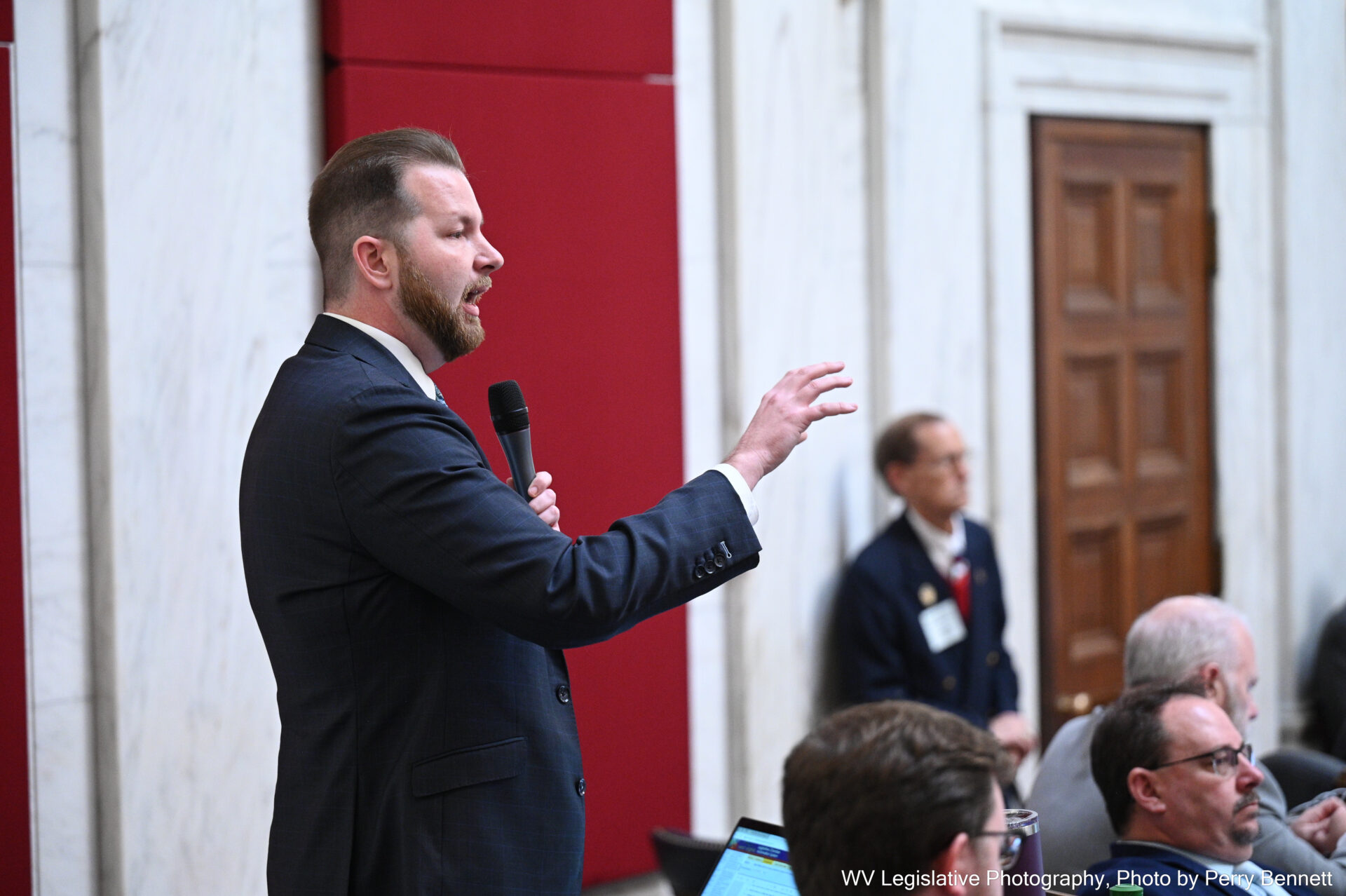On third reading in the House of Delegates Thursday, there was a long debate over minorities purchasing car dealerships and a separate debate on control of the Legislative Auditor’s office. Other bills and resolutions included smoking in the car with a child, and taking action over a massive federal deficit.
Senate Bill 173
Senate Bill 173 modifies guidelines for motor vehicle dealers, distributors, wholesalers, and manufacturers. The lengthy bill covers numerous automotive sales industry guidelines. The bill failed last session.
Debate on the bill focused on a car manufacturer’s right of first refusal. This is a clause in a contract that gives a prioritized, interested party the right to make the first offer on purchasing a West Virginia car dealership before the manufacturer can negotiate with other prospective buyers.
Del. Mike Pushkin, D-Kanawha, proposed an amendment enhancing opportunities for qualified persons who are part of a group who have historically been underrepresented in buying car dealerships. He referred to an industry lobbyist testifying in committee.
“The intent of this bill was to preserve a good old boy system,” Pushkin said. “The intent of this bill was to keep the manufacturer from selling to minority owners. And then the question was like, do you mean less than 50 percent? No, minority as in racial minority, or women. So I don’t think that’s what the intent of this bill should be. So let’s prove what the real intent is.
The amendment was rejected.
Del. Daniel Linville, R-Cabell, said the proposal sets a level playing field in the competitive and lucrative auto dealer industry.
“To set a level playing field for all of the interactions between some of the very largest organizations that are publicly traded entities, the manufacturers of these automobiles, and their local dealers,” Linville said. “Frankly, I think that we stand for free markets, I think that, as has been said, you should be able to sell your business, to whom you wish, without the ability for that to come in and be assigned and placed somewhere else.”
Senate Bill 173 passed 87-13.
Senate Bill 687
Investigating possible wrongdoing or mismanagement within state agencies and departments is the job of the Legislative Auditor’s office. Senate Bill 687 would clarify the Legislative Auditor’s scope of authority. The bill would have the auditor responsible to the Joint Committee on Government and Finance; and that the auditor may exercise powers at the direction of the Senate President or Speaker of the House of Delegates.
A sustained litany from those opposed to the bill, including Del. Larry Rowe, D-Kanawha, noted a lack of investigative independence and transparency with the revised scope of authority.
“We want somebody that we can trust to tell us the truth,” Rowe said, “And we want that truth to be made public and fair.” This bill is a takeover of the legislative auditor’s office. It’s eliminating the independent, professional decision making and investigations that they perform. There is no complaint about the service that they have performed.”
But Del. Adam Burkhammer, R-Lewis, said investigating and auditing will be enhanced by this bill.
“There’s been some conversation about whether this should be an independent auditor,” Burkhammer said. “I would completely disagree with that notion. Because the very idea of the Legislative Auditor is to work for this body. He’s appointed by the committee to serve at its will and pleasure. That committee is the Joint Committee on Government and Finance, appointed by that committee, to work for its will and pleasure to serve this body, so that we can make sound policy decisions in the direction that we want the state to go.”
Senate Bill 687, the Legislative Auditor bill, passed with a 56 to 41 vote and goes to the governor’s desk.
Other House Action
In committee and on the Senate floor, debate over Senate Bill 378, prohibiting smoking in a vehicle when minors 16 or under is present, centered on health versus freedom. In the House, there was no debate as the bill passed by a 66-33 margin, and went to the governor’s desk.
A charge for lawmakers in West Virginia and in Washington D.C. to take action on a multi-trillion dollar federal deficit is at the root of House Concurrent Resolution 57. It demands that Congress call a Convention of States to propose amendments to the U.S. Constitution to create federal fiscal responsibility
Del. Bill Ridenour, R-Jefferson, is a sponsor of the resolution. He said this is not a duplicate of a 2022 resolution, but a call for congressional action to not have the state and nation fall into a fiscal abyss.
“Every 90 days, we’re adding a trillion dollars in debt to the US debt,” Ridenhour said. We’re on the edge of a fiscal abyss. And we’ve got to do something, we as a nation have to do something. But we in this body have to do something as well. We have a responsibility, under federalism, to act with the federal government with the states to try and take action that will have some impact on where we’re going as a nation.”
Countering concerns on the issue were of a possibly open-ended convention that might get away from the fiscal point, the resolution was adopted with a 79-18 vote.
Senate Bill 170 deals with workers compensation health care coverage. It establishes a rebuttable presumption of injury for certain covered firefighters that develop bladder cancer, mesothelioma and testicular cancer. The bill passed 99-0 and goes to the governor’s desk.
